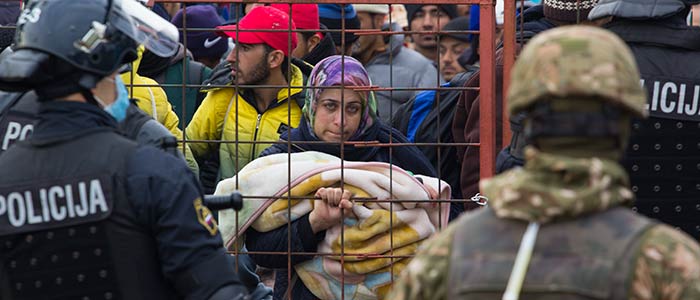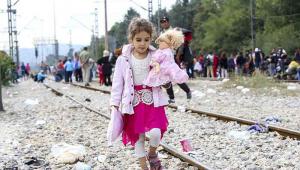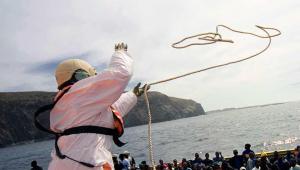Web_RefugeesWinter_shutterstock_331912490.jpg

A refugee and her child at the Slovenian border
An update issued by Unicef and the International Organisation for Migration on the crisis found that children are increasingly among those fleeing their countries and travelling to Europe. The NGOs warned they will be increasingly at risk as winter takes hold.
Sarah Crowe, a Unicef spokeswoman, said babies are increasingly being born in the unfavourable conditions along migration routes and carried along as newborns. “With winter fast approaching, there is a heightened risk of these children dying at sea or on land, or becoming seriously ill,” she said.
The update said babies and small children and those with disabilities and special needs are particularly at risk, as they can slip easily from parents’ arms if boats encounter problems.
In October alone, at least 90 children died in the Eastern Mediterranean sea and nearly one in five were under the age of two. Across the whole year, the majority of people who have drowned have been under the age 12.
Children made up over a quarter of the 730,000 sea arrivals in Greece, where refugee and migrant numbers are beginning to pick up again after a decline.
Crowe said more than half of people now arriving at borders in the Balkans are women and children, a 27% increase on the summer. The crisis has now become a “crisis for children and their mothers”, she said.
Worsening weather, unpredictable border crossings and border procedures are compounding the challenges facing children on the move, she warned.
Newborn babies and young children, women who have recently given birth, children who have become separated from their families, unaccompanied adolescents and trafficked children are particularly vulnerable, the update said.
“So far, the winter has been mild, but this is changing and the response now is not only about warm clothes, baby socks and blankets, but about providing children with a sense of stability and protection after what they have been through,” Crowe said.













